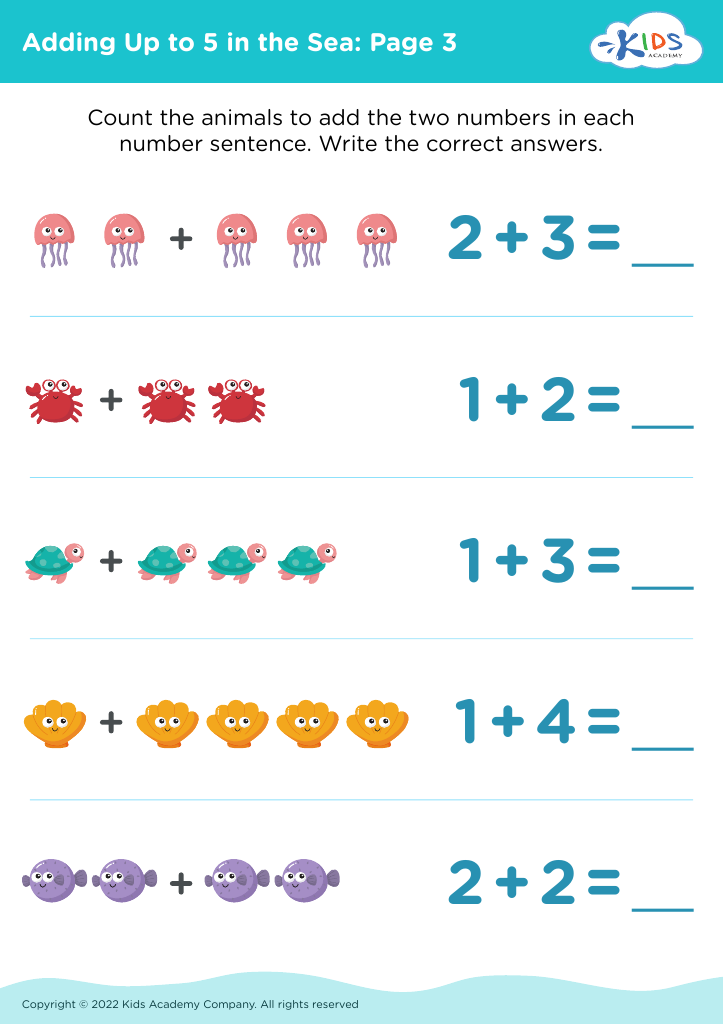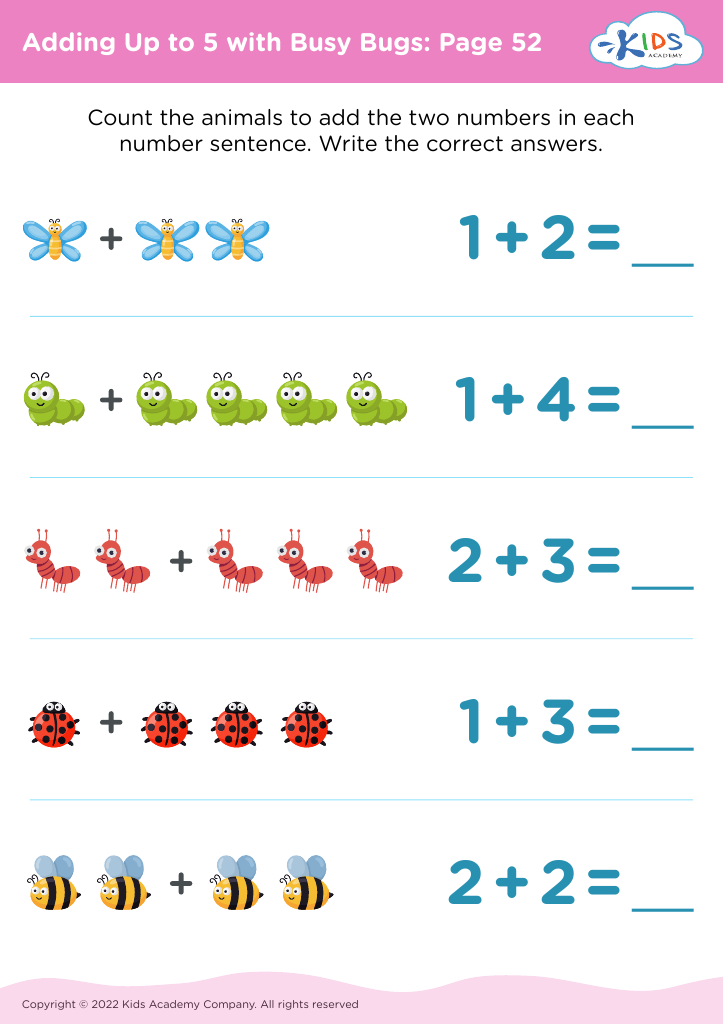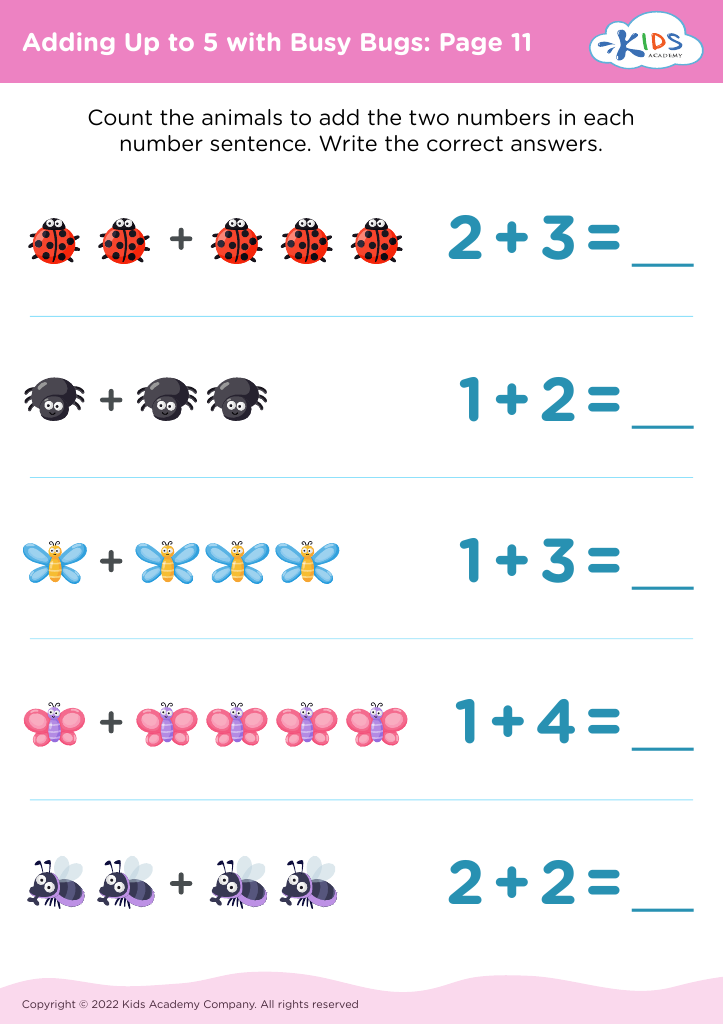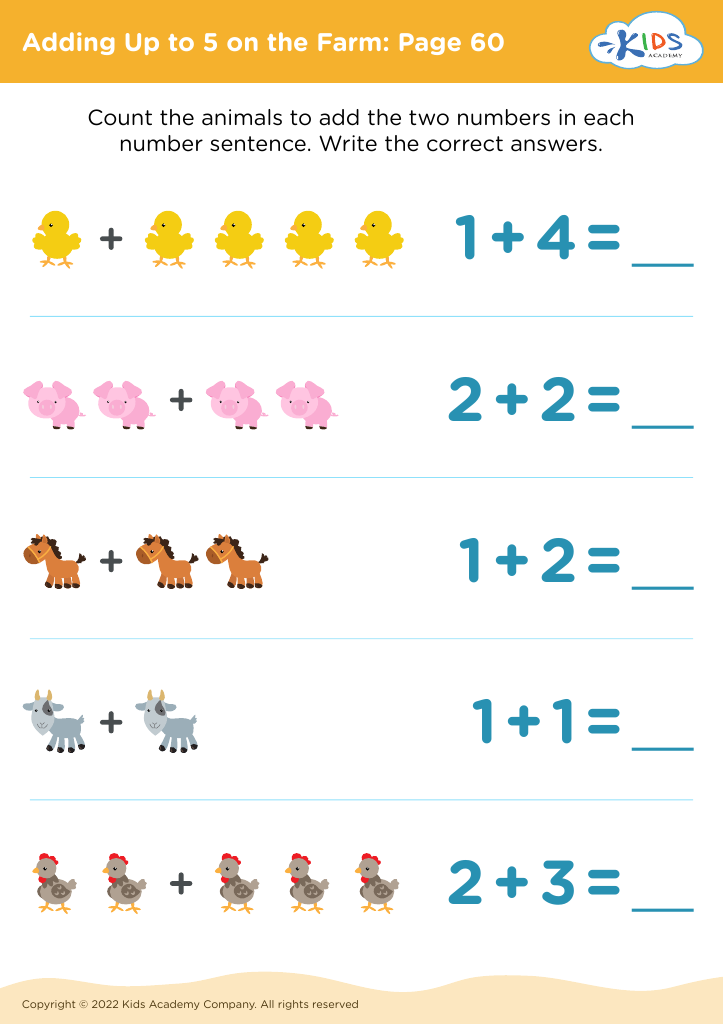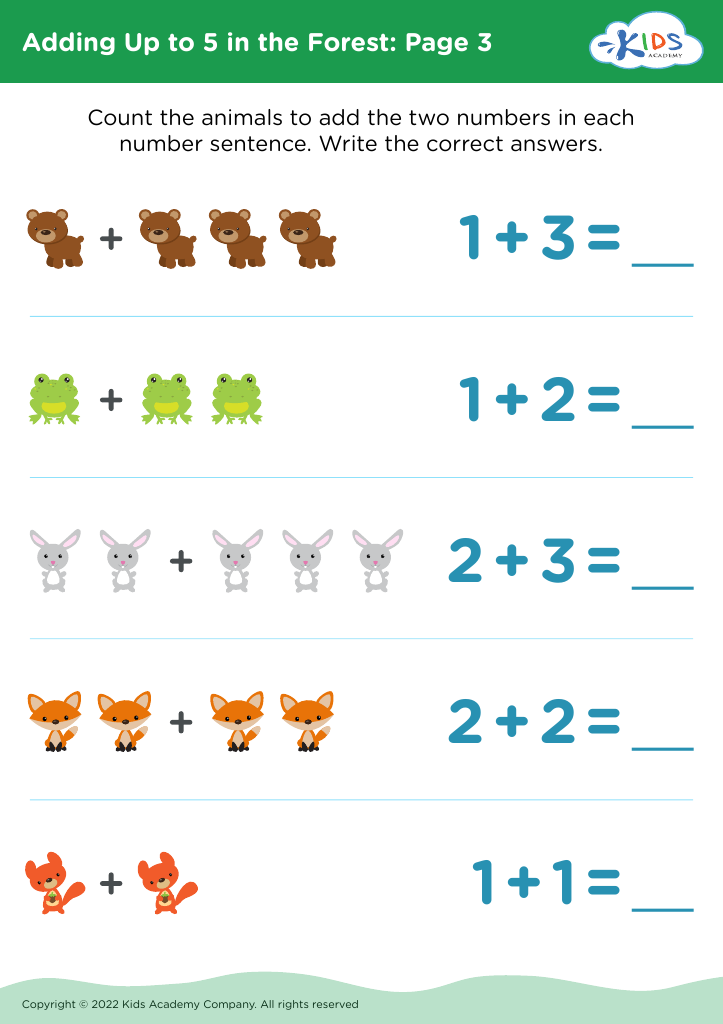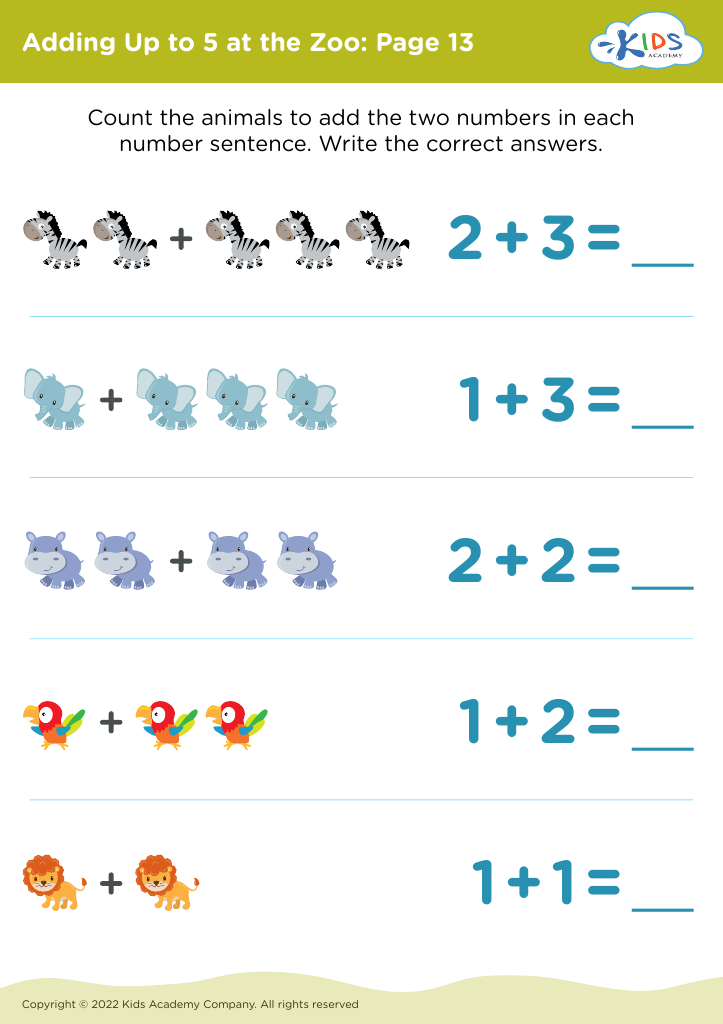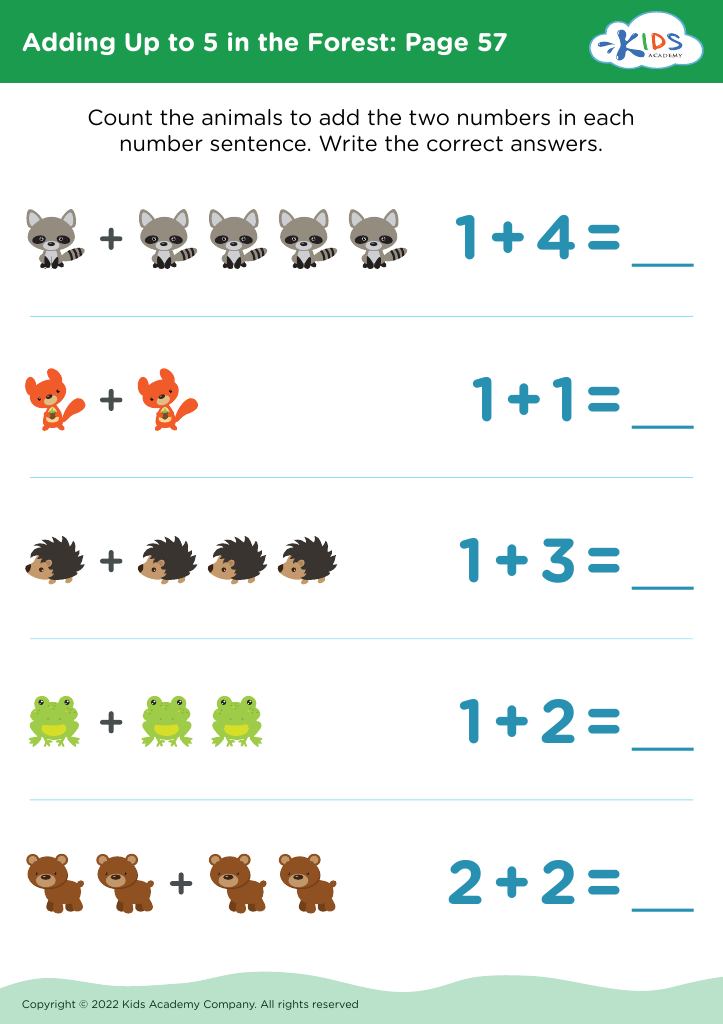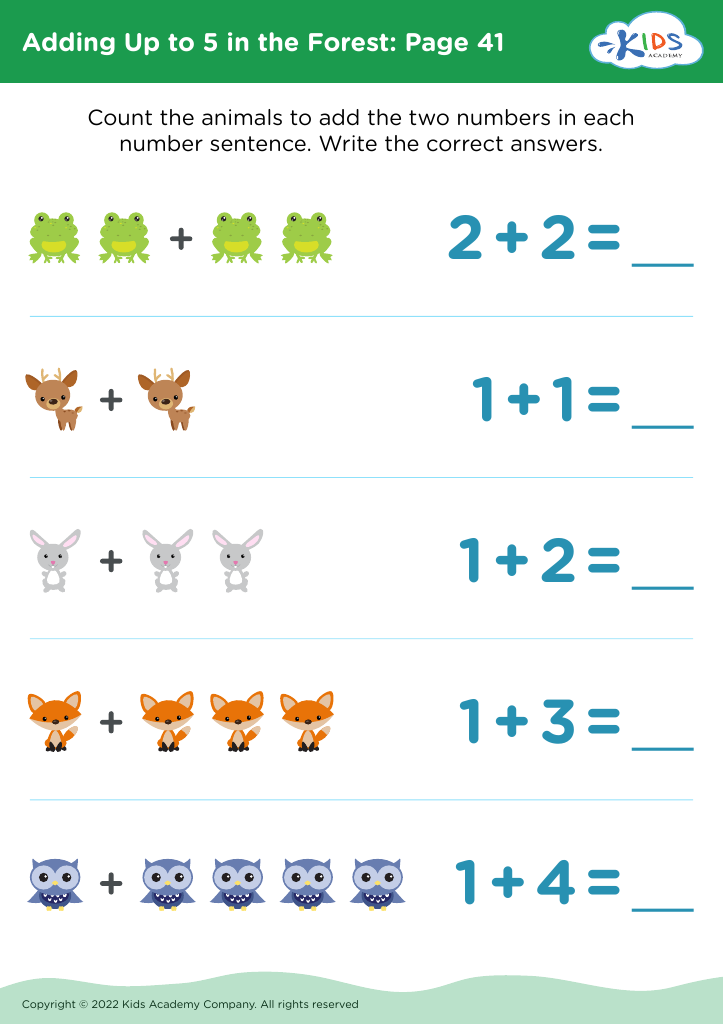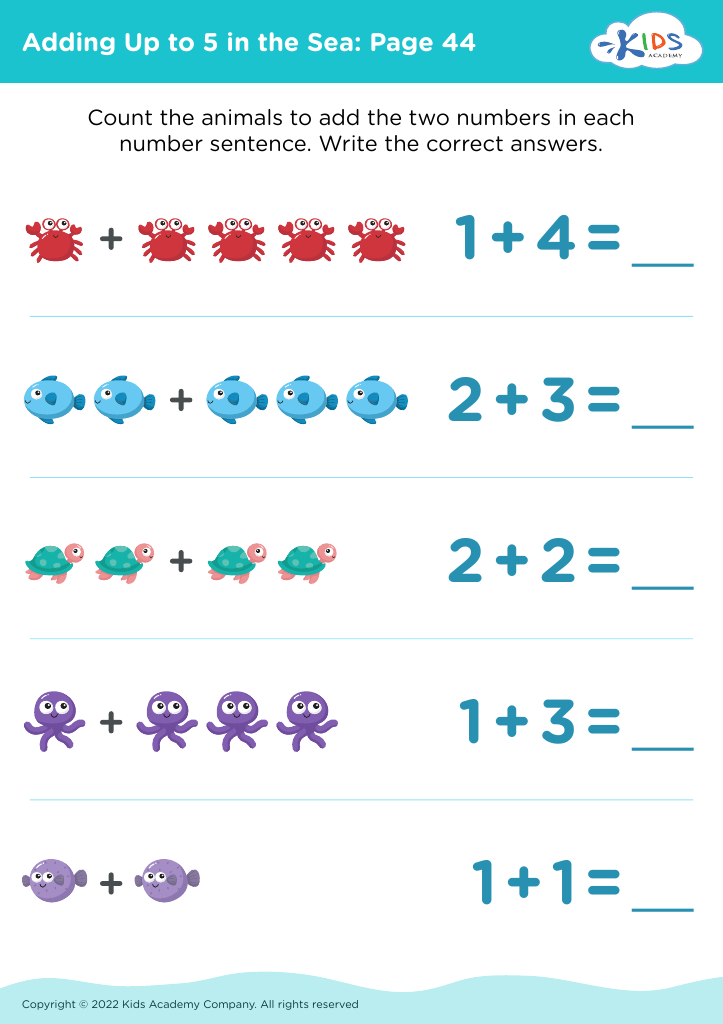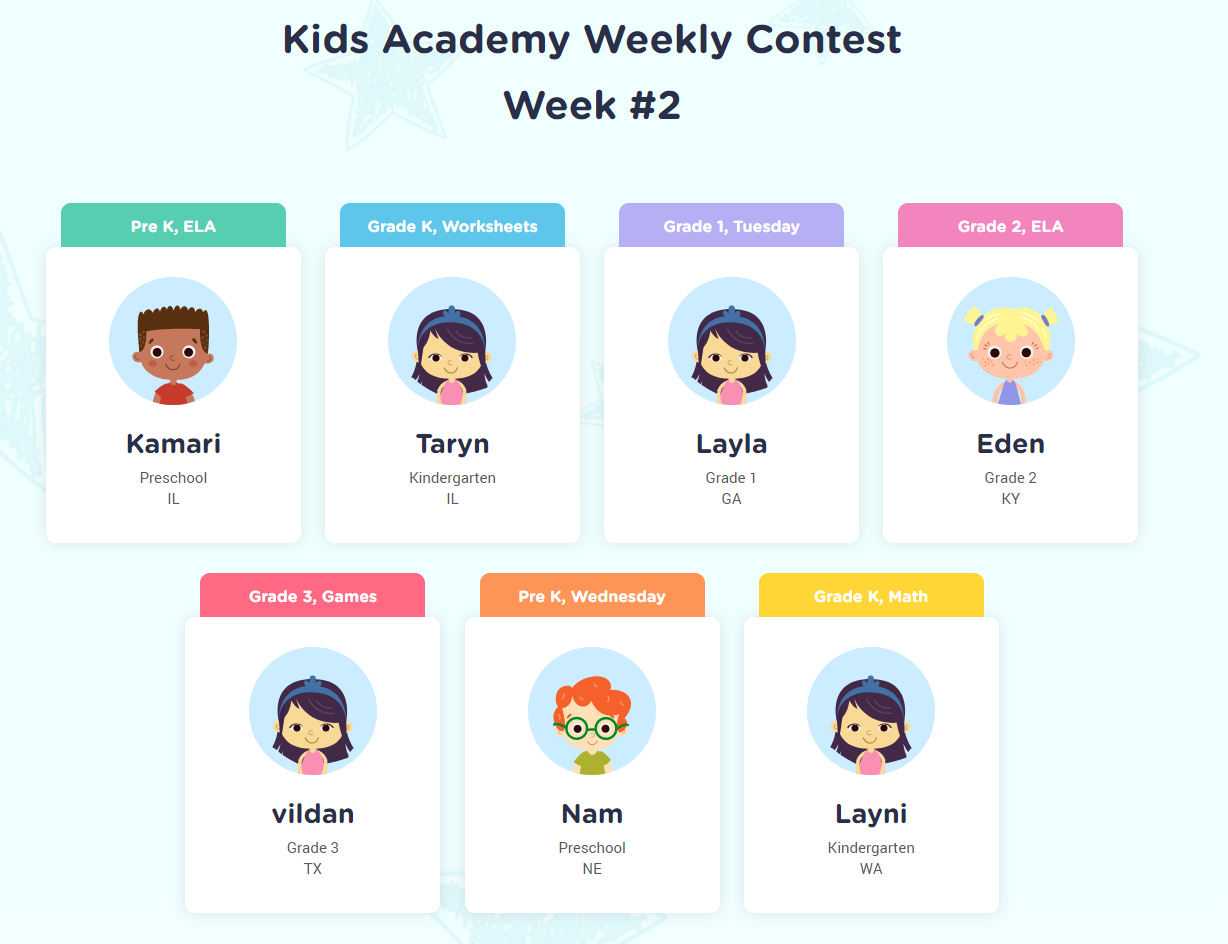Basic Addition Skills Math Worksheets for Ages 4-6 - Page 11
262 filtered results
-
From - To
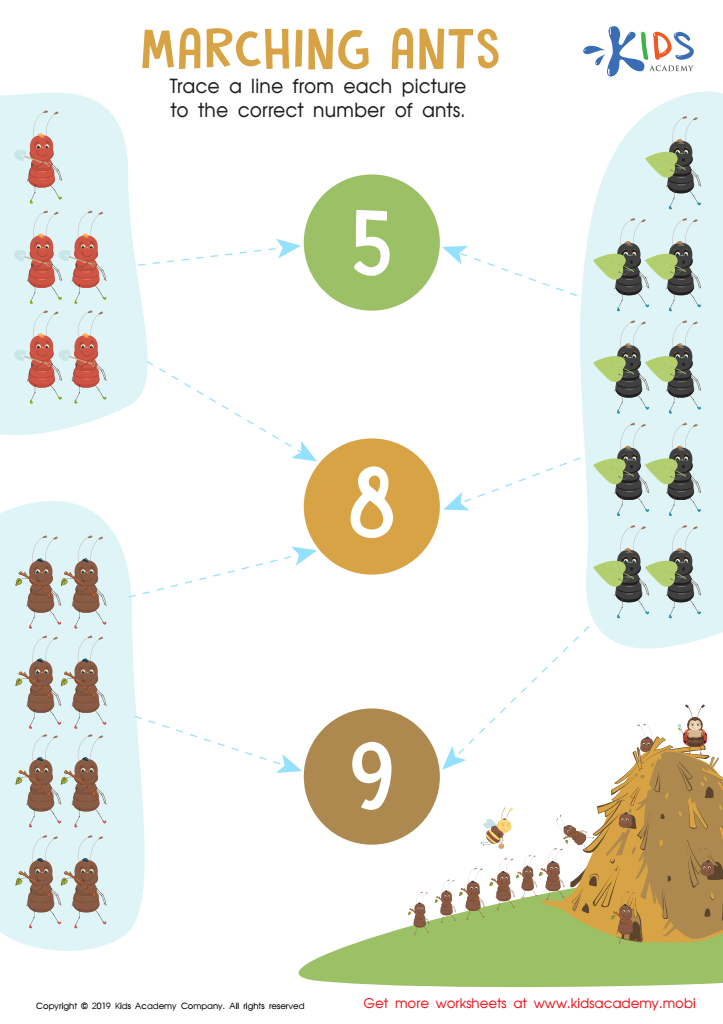

Marching Ants Worksheet
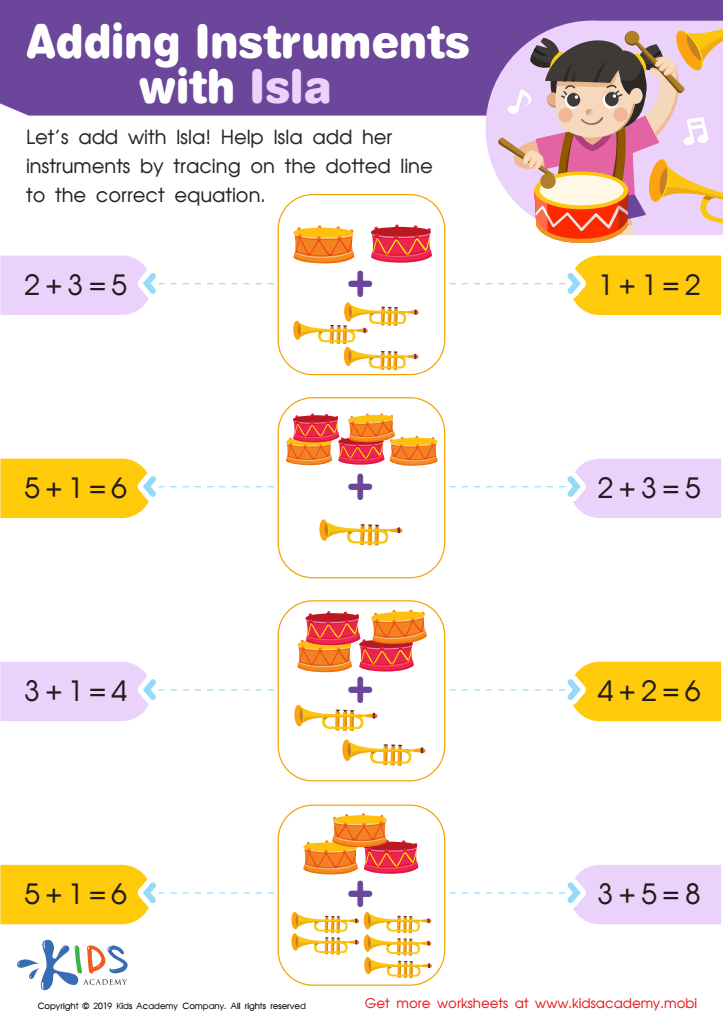

Adding Instruments with Isla Worksheet
Parents and teachers should place a strong emphasis on developing basic addition skills in children aged 4-6 because these early math skills form the foundation for future learning and cognitive development. At this young age, children's brains are exceptionally receptive to new information, making it an ideal time to build a solid grounding in basic arithmetic.
Firstly, mastering simple addition helps to enhance a child’s number sense, an essential skill that will benefit them in both their academic and everyday life. A strong grasp of addition sets the stage for learning more complex mathematical concepts, such as subtraction, multiplication, and division. Without proficiency in these fundamental skills, children may struggle with higher-level math in later grades, which could affect their overall academic performance and self-confidence.
Secondly, practicing addition enhances problem-solving abilities and logical thinking. It encourages children to identify patterns, make connections, and approach tasks systematically. These critical thinking skills are not only relevant to math but are also transferable to other subjects and real-life situations.
Finally, an early victory in mastering addition fosters a positive attitude towards learning and school. It instills a sense of achievement and builds confidence, motivating children to tackle new challenges with enthusiasm. Thus, cultivating basic addition skills at this developmental stage is crucial for both academic success and overall cognitive growth.

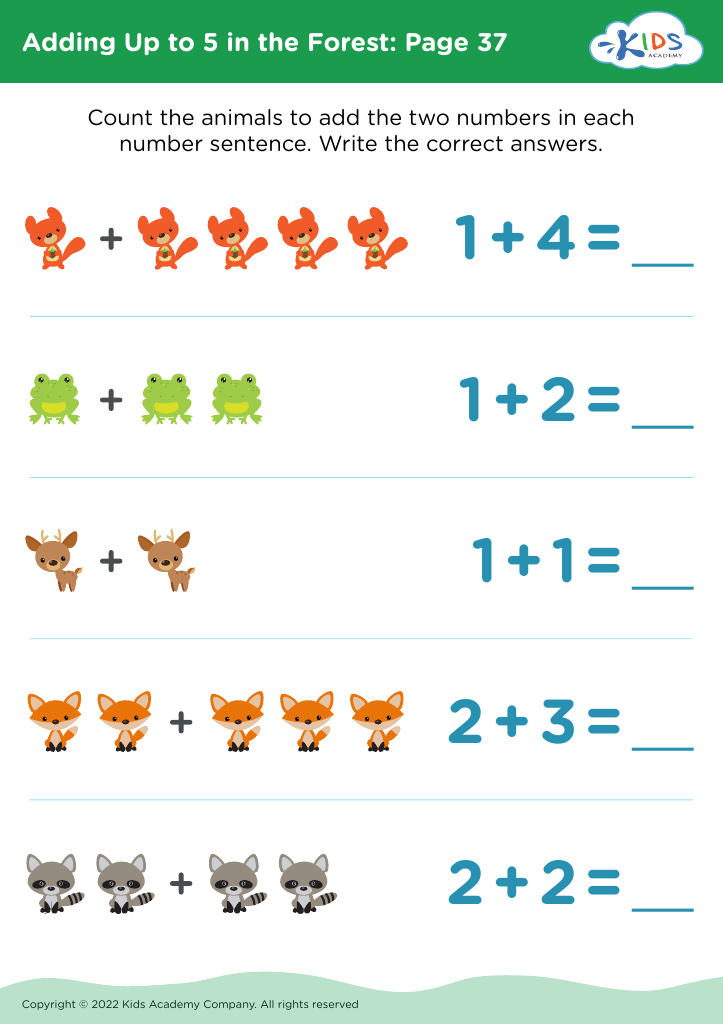
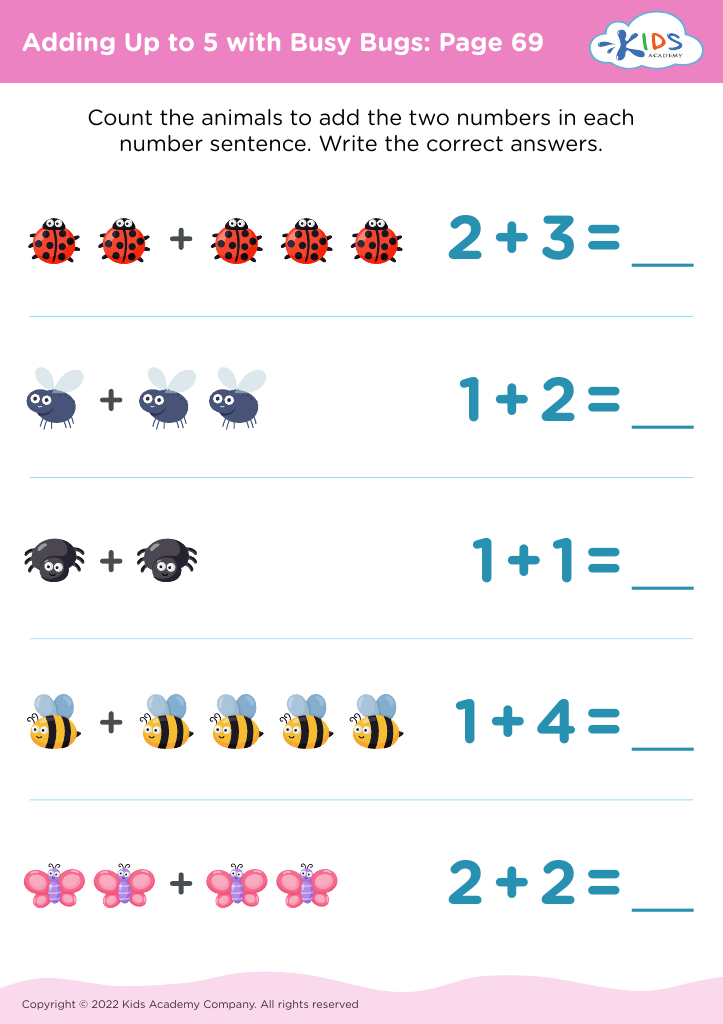
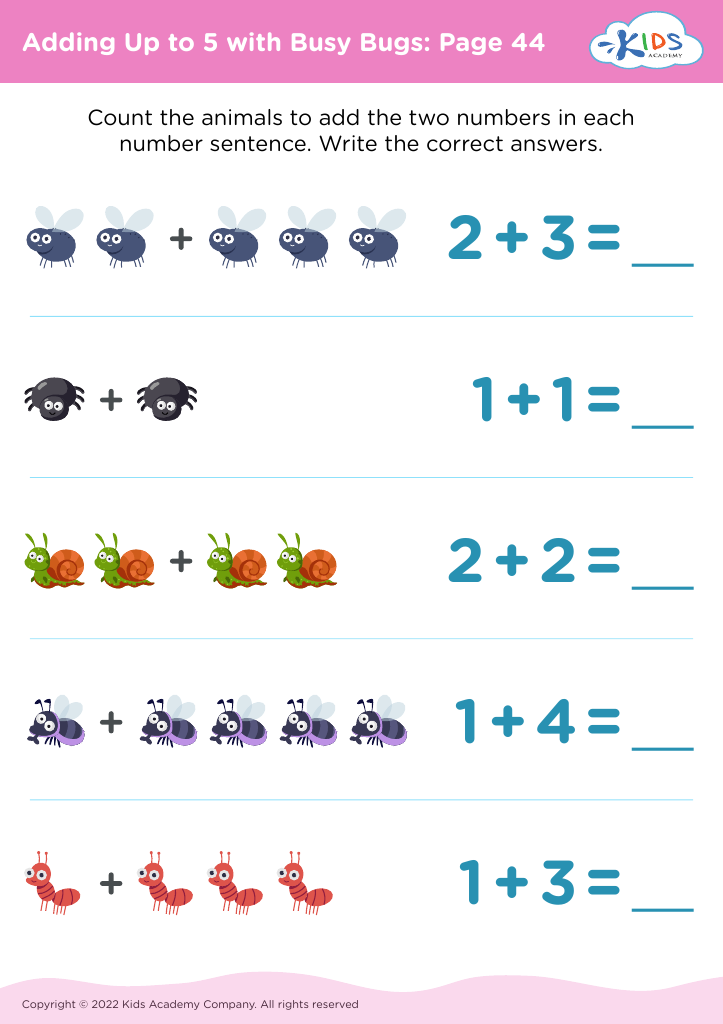
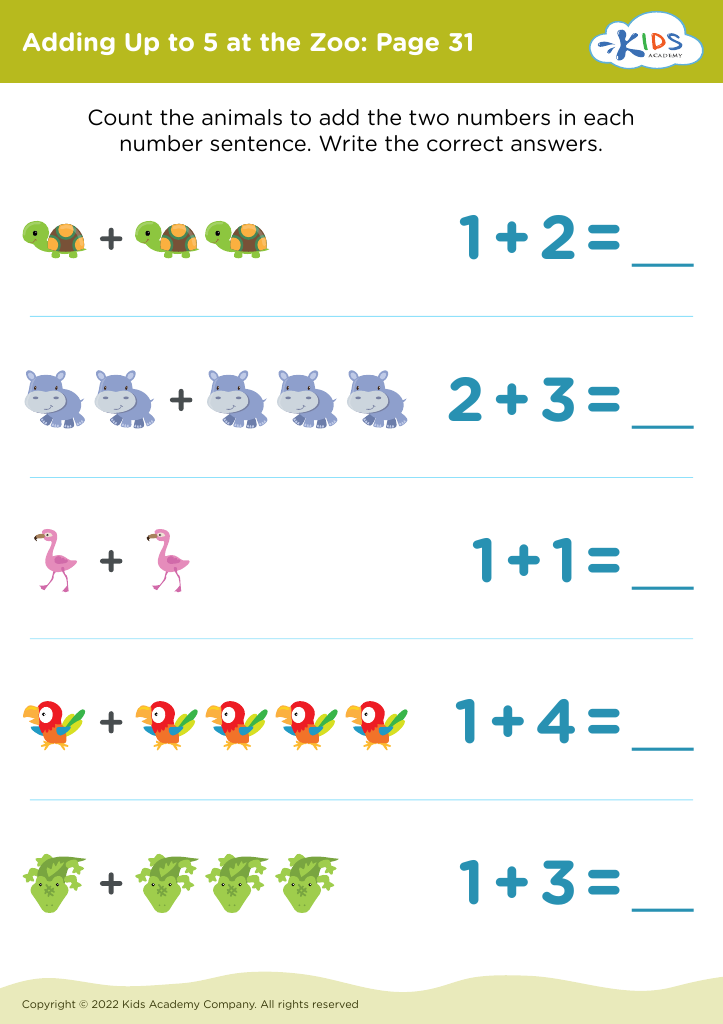
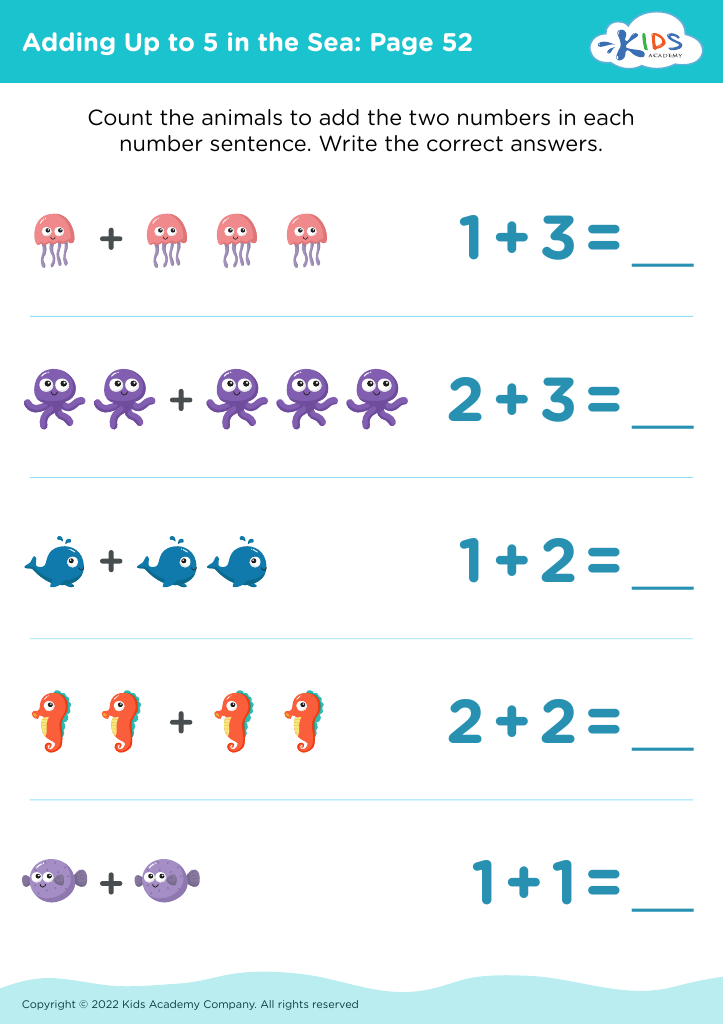
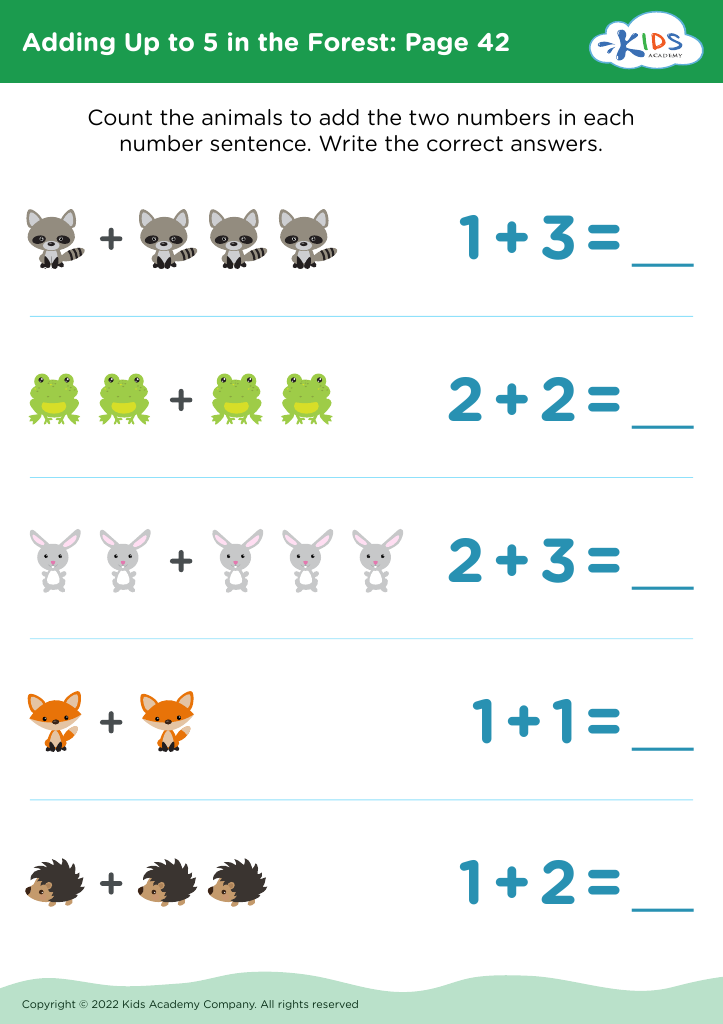
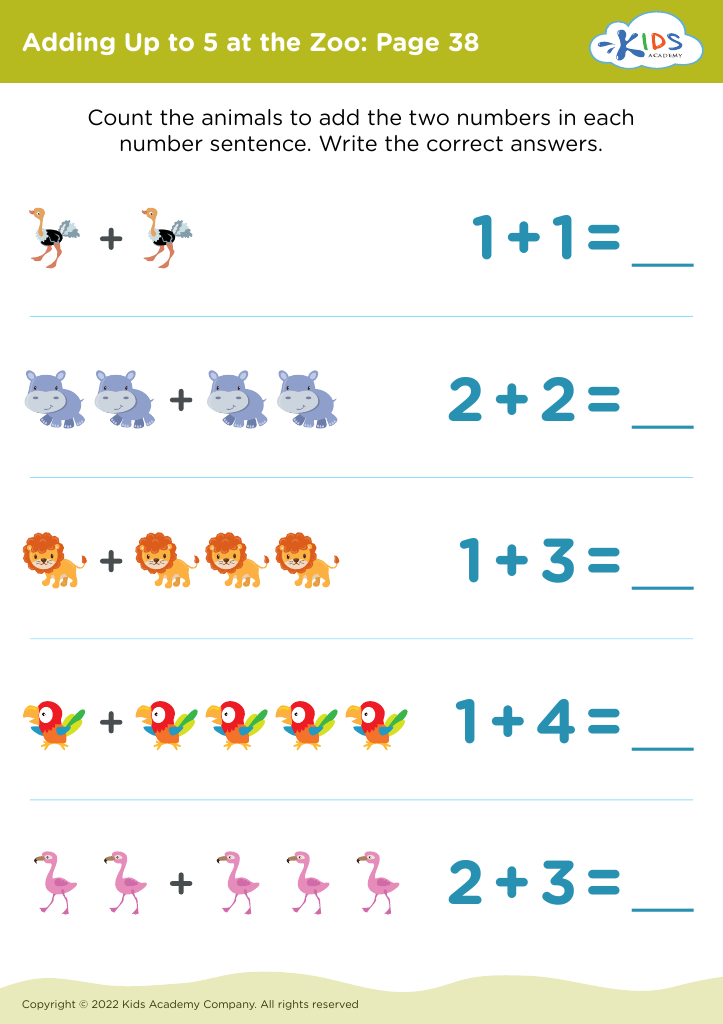
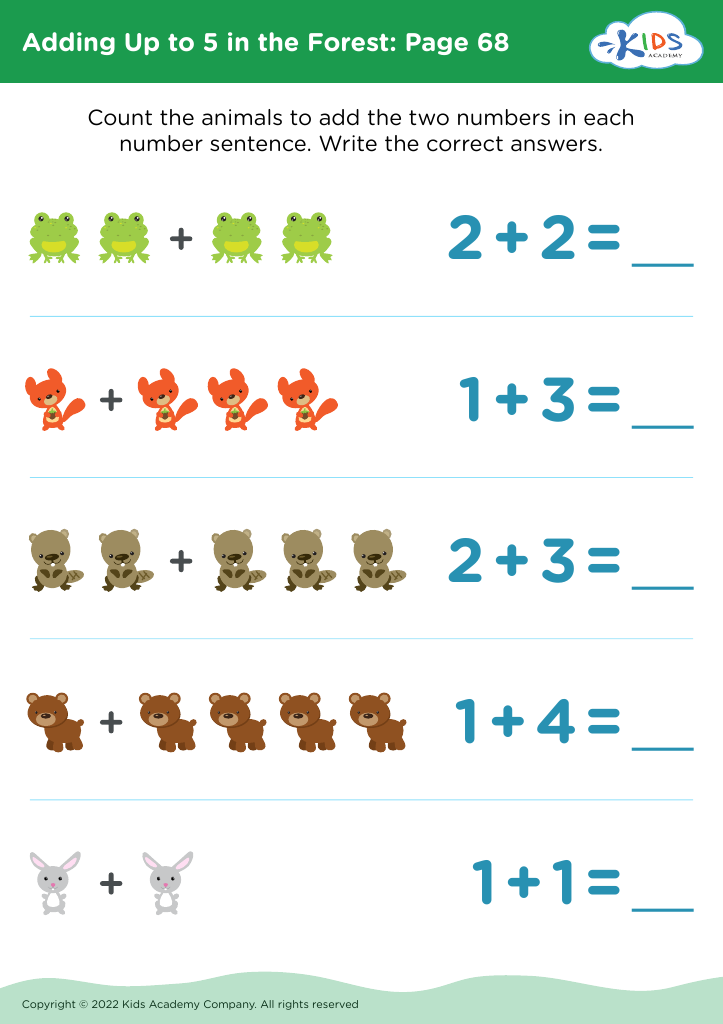
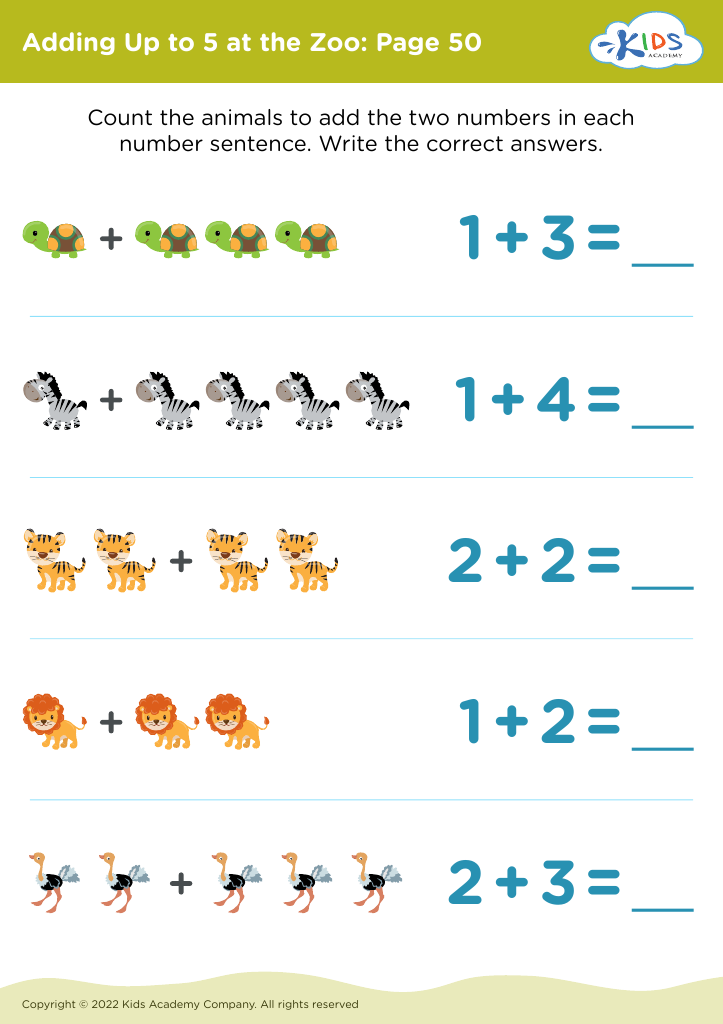
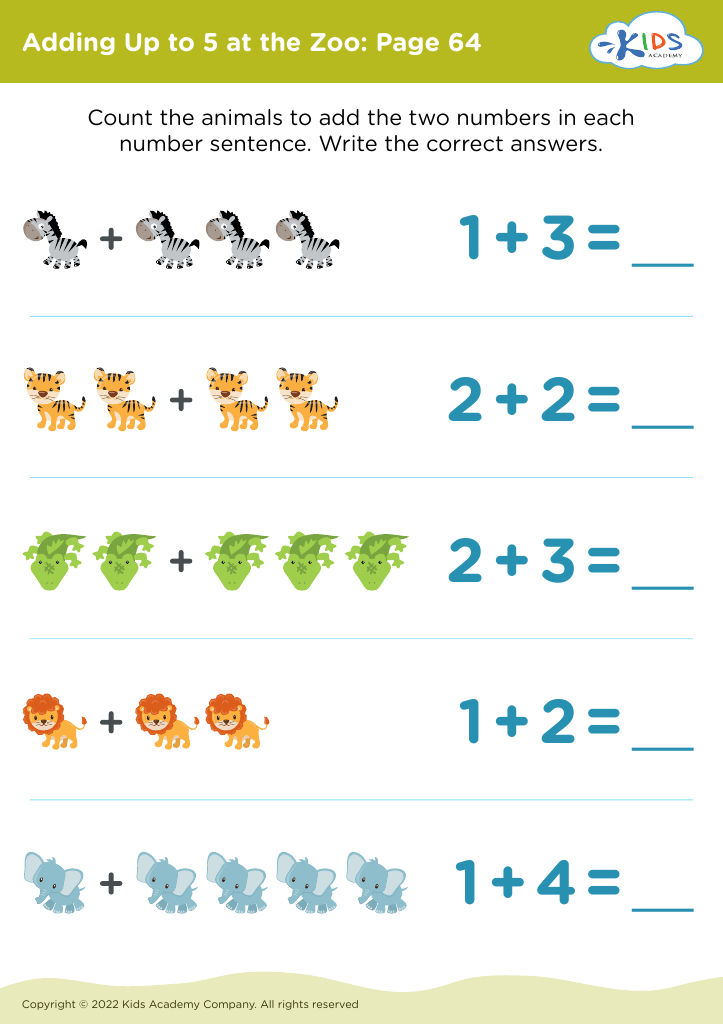
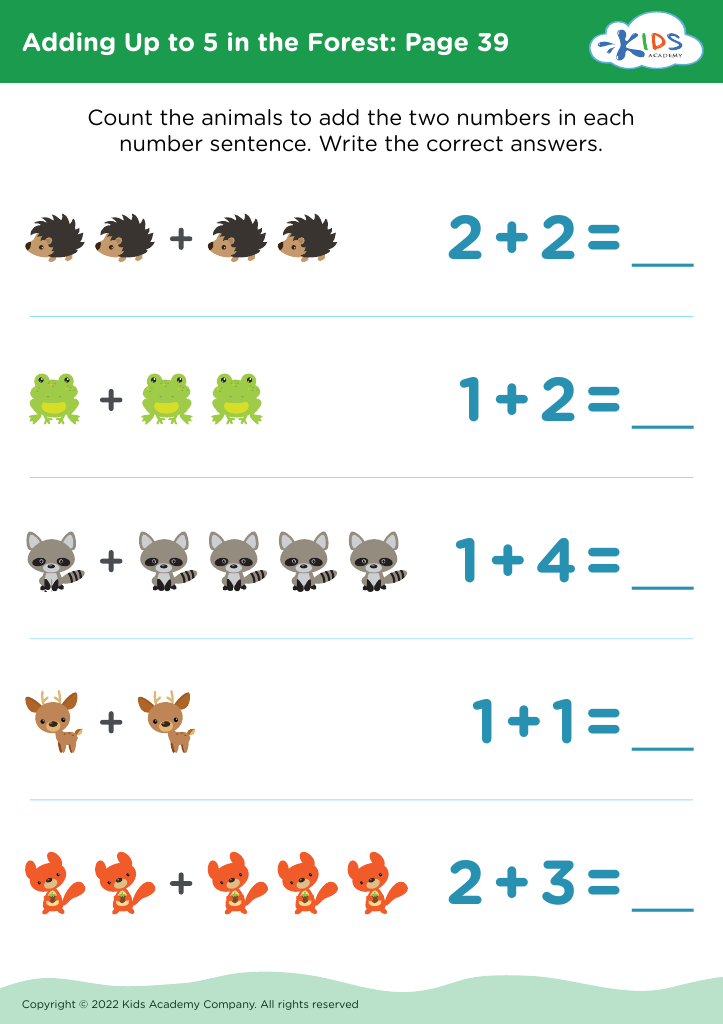
 Assign to My Students
Assign to My Students
